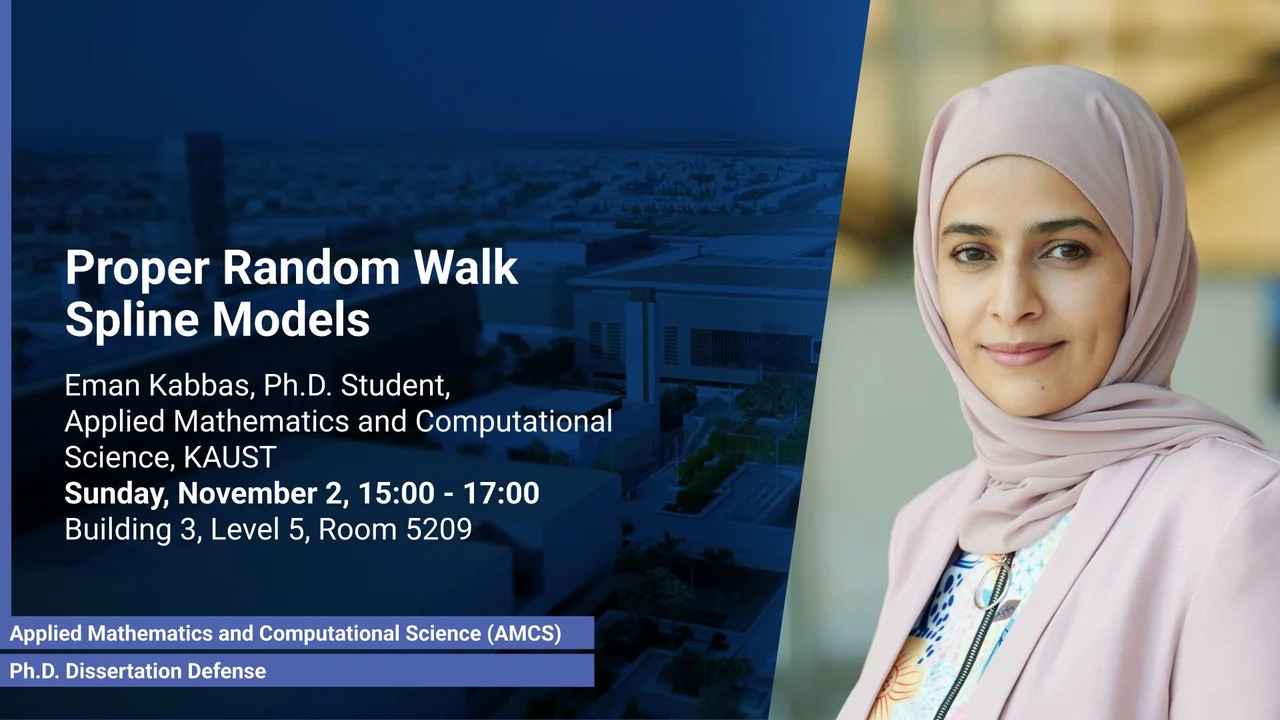
Proper Random Walk Spline Models
This dissertation introduces the Proper Random Walk of order 2 (PRW2), a full-rank Gaussian Markov random field that provides a principled alternative to intrinsic random walk (RW2) priors. By construction, RW2 models exhibit heteroscedastic marginal variances, inflated boundary effects, sensitivity to grid design, and unbounded forecast uncertainty—features that undermine the reliability of inference, particularly in sparse-data settings or beyond the observed domain.
Overview
Splines are central to nonparametric regression, and intrinsic spline formulations such as the second-order random walk (RW2) have become standard for smoothing structured data. However, their intrinsic nature entails specific structural features — non-constant marginal variances, inflated boundary uncertainty, sensitivity to grid design, and unbounded predictive variance — that arise from the absence of a finite correlation range. While these characteristics serve the purpose of flexible smoothing, they can lead to unstable or misleading behavior in prediction or sparse-data settings when the intrinsic nature of the model is not carefully accounted for.
This dissertation introduces the Proper Random Walk of order 2 (PRW2), a full-rank Gaussian Markov random field that provides a principled alternative to intrinsic random walk (RW2) priors. By construction, RW2 models exhibit heteroscedastic marginal variances, inflated boundary effects, sensitivity to grid design, and unbounded forecast uncertainty—features that undermine the reliability of inference, particularly in sparse-data settings or beyond the observed domain. The PRW2 formulation ensures constant marginal variance, stable predictive behavior, and improved interpretability. Although RW2 and PRW2 belong to different model spaces, PRW2 closely reproduces the smoothing behavior of RW2 as the range parameter increases, ensuring smoothing behavior without requiring intrinsic specification. The model is developed within the INLA/SPDE Bayesian framework, incorporating penalized complexity (PC) priors for the range and precision parameters. The methodology is demonstrated through simulation studies and real-world applications, highlighting its potential to improve Bayesian smoothing and modeling practices.
Presenters
Brief Biography
Eman Kabbas is a Saudi researcher specializing in Bayesian statistics and modeling. She earned her Bachelor’s degree in Mathematics from Imam Abdulrahman bin Faisal University, then continued her studies in the United States through the King Abdullah Scholarship Program, obtaining a Master’s degree in Applied Mathematics from the University of North Carolina. Supported by scholarships from KAUST and the Royal Commission of Jubail and Yanbu, Eman is currently a PhD student in Applied Mathematics and Computational Science (AMCS) at King Abdullah University of Science and Technology (KAUST), supervised by Professor Håvard Rue. Beyond her research, Eman is a Mathematics and Statistics faculty member at Jubail Industrial College under the Royal Commission of Jubail and Yanbu, and co-founder of Sorat Alardh, a startup advancing environmental monitoring and climate analytics. She envisions combining theory and real-world application by transforming scientific research into practical tools that enhance environmental resilience and data-driven innovation in Saudi Arabia. Eman enjoys reading, learning new languages, playing the piano, and exploring strategic games like chess.

